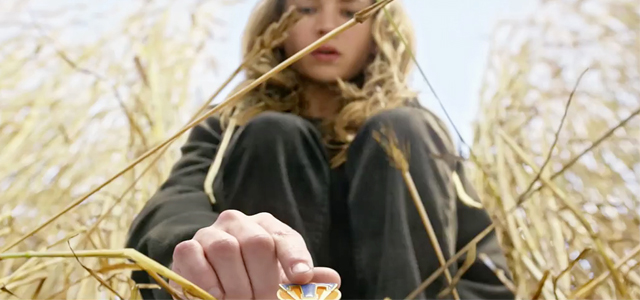(PG) George Clooney, Hugh Laurie, Britt Robertson
A robot from the future comes to enlist the services of a juvenile delinquent for the purposes of saving the present and future worlds. They must stay one step ahead of futuristic law enforcement officers. Ultimately the robot and the teen must choose to save the world and determine how much they are willing to sacrifice.
Add in an humanistic, environmentalist message and a Disney-like setting and it may sound like the a new spin for the Terminator franchise, but it is not, it is the basic premise for Tomorrowland, which is the return to the director’s chair for Brad Bird (The Incredibles, Mission Impossible: Ghost Protocol).
The optimistic Casey Newton (Robertson) is chosen by a robotic recruiter, Athena (Raffey Cassidy), because she is a brilliant dreamer. Casey’s role is to become the saviour of the future. She and Athena must enlist the help of Frank Walker (Clooney), whose history with Athena and the world of Tomorrowland has left him a bitter and reclusive man.
Their journey leads them to the harsh realities of trying to find Utopia and attempting to fix the world in which they live. Can they reach Tomorrowland, bring hope to the present day — and to the future?
The beginning of Tomorrowland is hopeful as it explains the history of Frank as an optimistic, creative and hope-filled adventurer. Unfortunately, the film never lifts itself beyond this opening segment.
The story is slow, boring and only allows for glimpses of the originality that we have come to expect from Bird. In the end, Tomorrowland feels like a heavy-handed environmental message that is connected together by an empty and joyless experience.
The special effects are adequate and one scene that uses the Eiffel Tower to great effect is a brief glimpse of creativity. However, on many other levels, Tomorrowland fails to deliver a satisfying experience. The language and violence are mild which earns the film its PG rating, but just because children can go see it, does not mean they necessarily should.
In Bird’s 2004 animated feature The Incredibles there was a running joke about villains who monologue. It’s interesting, then, that Tomorrowland falls into the trap of long-winded speeches and exposition. After a while, it does feel like Clooney and Hugh Laurie (House) are applying for a Presidential nomination.
When it comes to opening up some of life’s bigger questions, Tomorrowland offers many veins of discussion: The need for a saviour; mankind’s role in the universe; and what does the future hold for this world are to be considered.
Bird seems to forget that there is a spiritual element to the human condition. God seems to be the missing piece in the equation of the fate of mankind. What Tomorrowland does demonstrate is that without God, we are left with ourselves to find solutions. Solutions that will inevitably fail.
God does not leave us without hopeful solutions for the future, but these answers can only be found in God.
Bird has had a great track record, but he failed to deliver with this heavy-handed humanistic environmentalist message cleverly disguised as a children’s adventure.
The message of the film could be forgivable if it was a well-executed film, but it is not. While hope and optimism are essential for mankind to exist, we can only hope Bird can get back to his original form.
What are the bigger questions to consider from this film?
- What does the future hold? (The book of Revelation, James 4:13-16)
- Can we solve our own problems? (Proverbs 3:5, Philippians 4:6)
- Is there anything wrong with following your dreams? (Jeremiah 29:11, Matthew 6:33)
Russell Matthews works for City Bible Forum Sydney and is a film blogger





